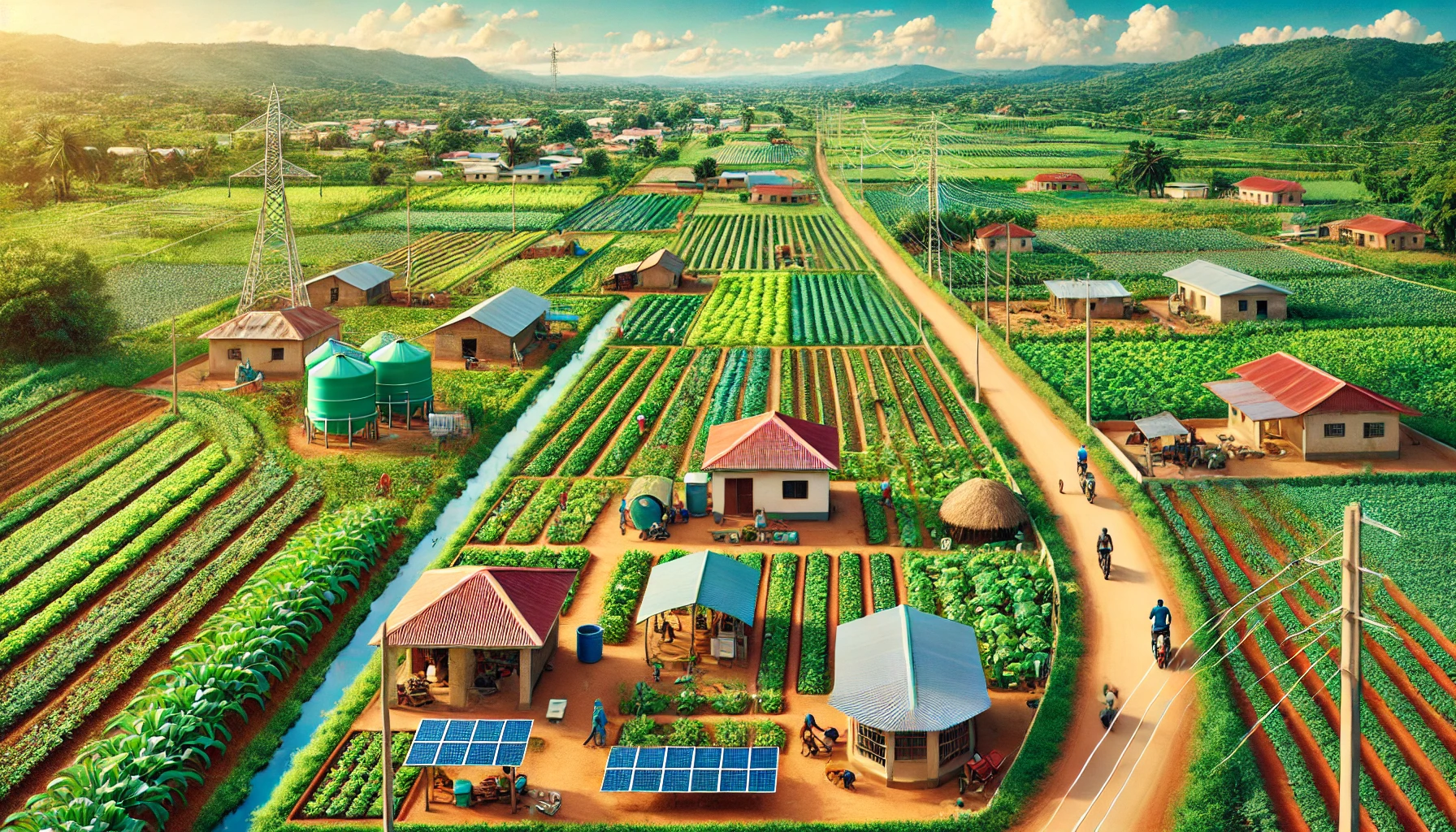Transforming Rural Togo: How Strategic Public Investments Could Unlock Economic Growth
The World Bank’s Public Finance Review on Togo highlights the need for improved public investment in agriculture, energy, and infrastructure to boost rural development. The report emphasizes that better resource management and private sector involvement could significantly enhance productivity and economic growth.

The World Bank’s Public Finance Review (PFR) on Togo, conducted by a team from the institution, explores how improving public investment management could accelerate rural development and structural transformation in the country. Agriculture remains a key sector, with around 50% of the population living under the poverty line depending on it for their livelihood. However, low-yield production practices and inadequate infrastructure in rural areas have left many farmers trapped in subsistence farming, unable to access larger markets or attract private investment. This PFR emphasizes that achieving sustainable development and reducing poverty in rural areas requires both modernizing the agricultural sector and improving rural infrastructure, particularly in terms of connectivity and electrification. The report also assesses the quality of public investment management in Togo, which has been found lacking in terms of efficiency, as well as examining how reforms could help mobilize the private sector to increase the impact of public investments.
Inefficient Public Investment Holds Back Progress
Despite the government’s efforts over the past decade to increase public investment, the level of public capital per person remains lower than it was in the early 2000s, reflecting both a lack of resources and inefficiencies in public investment management. This shortfall is exacerbated by exposure to climate shocks, which further reduce the effectiveness of investments. Togo’s infrastructure quality is notably low when compared to its peers, and improvements in the allocative efficiency of public investment could yield substantial gains. For instance, if Togo matched Côte d’Ivoire’s public investment efficiency, it could increase infrastructure quality by 14%, while matching Vietnam’s could boost it by 27%, and reaching Bangladesh’s level could result in a 37% improvement. The report recommends several reforms to achieve these efficiency gains, including enhancing project selection, budgeting, and execution processes, as well as ensuring that climate risks are considered throughout the investment cycle. If these reforms are implemented, the report suggests that Togo could significantly improve its infrastructure without needing additional budgetary resources.
Agricultural Productivity Hampered by Low Investment
Agriculture, as the cornerstone of Togo’s rural economy, remains heavily constrained by low productivity and a lack of investment in critical areas such as research, extension services, and mechanization. The government's agricultural policy, which aims to double productivity between 2017 and 2026, has faced numerous challenges, including insufficient budget allocations and inefficiencies in project execution. Public spending on agriculture has recently declined, and many of the government’s ambitious goals, such as increasing the use of fertilizers and improved seeds, expanding irrigation, and boosting farm mechanization, have fallen short. The review highlights that around three-quarters of domestic resources allocated to agriculture are used to finance current expenditures like salaries, leaving little for much-needed capital investments. Moreover, externally financed projects, while helpful, are often time-bound, creating discontinuity in the provision of public services when external funding ends.
Vulnerability to Climate Shocks Exacerbates Challenges
Efforts to improve agricultural productivity are further hindered by the sector’s vulnerability to climate shocks. Most farming in Togo remains rainfed, meaning that variable rainfall patterns can severely affect rural communities. Despite this, investment in climate adaptation measures remains low. The report emphasizes the need for increased funding for agricultural research, natural resource management, and climate change adaptation to strengthen the sector’s resilience. One area of progress has been the expansion of Planned Agricultural Development Zones (ZAAPs), where farms have demonstrated higher efficiency and productivity than in non-ZAAP areas. However, the scale of these improvements remains limited, and further investment is required to fully realize the potential of these zones.
Rural Electrification Faces Major Obstacles
The energy sector, particularly rural electrification, is another key focus of the PFR. Currently, only 25% of Togo’s rural population has access to electricity, compared to nearly universal access in urban areas. This lack of electricity severely limits the potential for modernizing agriculture through technologies like irrigation and post-harvest processing, which could significantly boost productivity. The Togolese government has implemented several initiatives, such as the CIZO project and the Tinga Fund, to improve rural electrification, but progress has been slow. The report identifies governance challenges at key public entities like the Compagnie Energie Electrique du Togo (CEET) and the Togolese Agency for Rural Electrification and Renewable Energy (AT2ER) as major barriers to faster electrification efforts.
Improving Road Infrastructure is Key to Unlocking Potential
On the transport front, rural road connectivity is highlighted as a critical factor for improving agricultural productivity and market access. While the government has made significant investments in road infrastructure, many rural roads remain in poor condition, making it difficult for farmers to access markets and services. The review recommends upgrading the road asset management system and streamlining public procurement processes to reduce delays and improve the quality of road projects. Mobilizing additional resources, including through public-private partnerships (PPPs), will also be necessary to bridge the funding gap for rural road maintenance and construction.
The World Bank’s Public Finance Review for Togo stresses that better management of public investments is essential to unlocking the country’s rural development potential. By improving the efficiency of public spending in key sectors like agriculture, energy, and transport, Togo could significantly enhance its infrastructure and boost economic growth without requiring additional resources. The report also emphasizes the importance of private sector involvement, particularly in light of the country’s tight fiscal constraints.
- FIRST PUBLISHED IN:
- Devdiscourse










